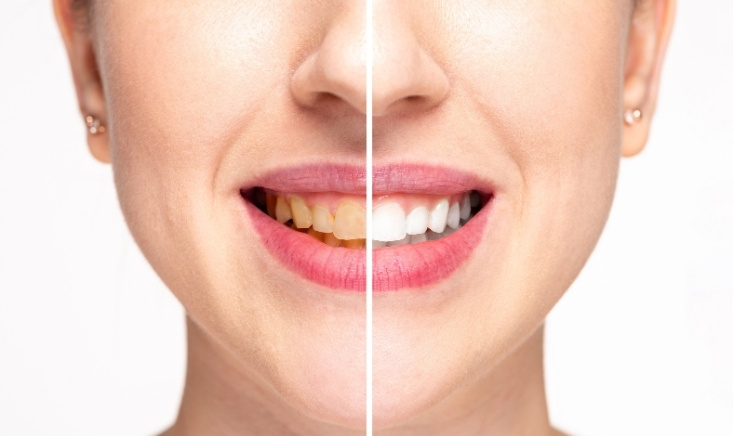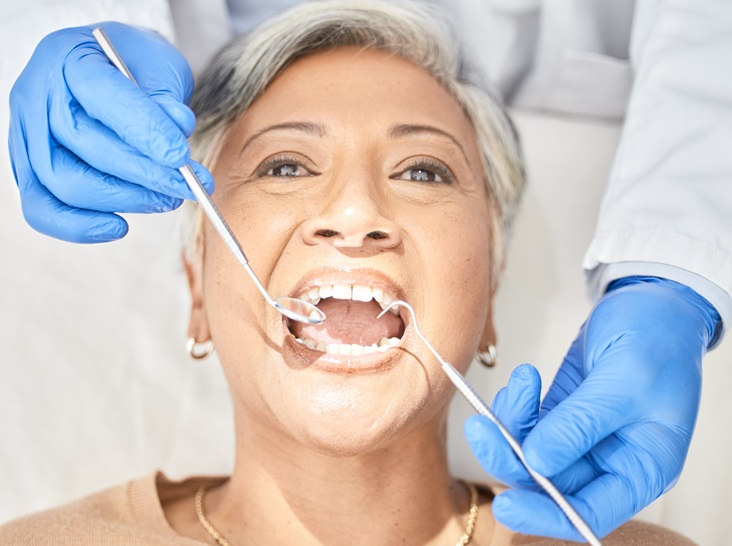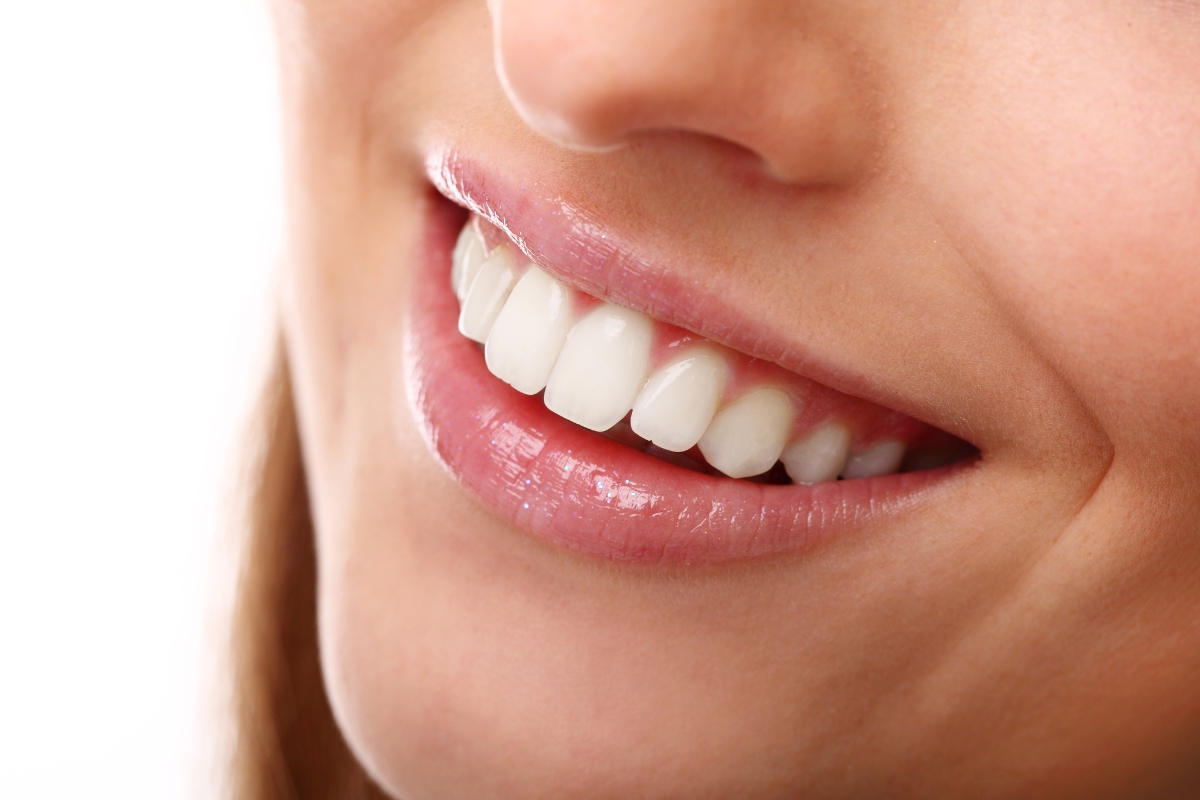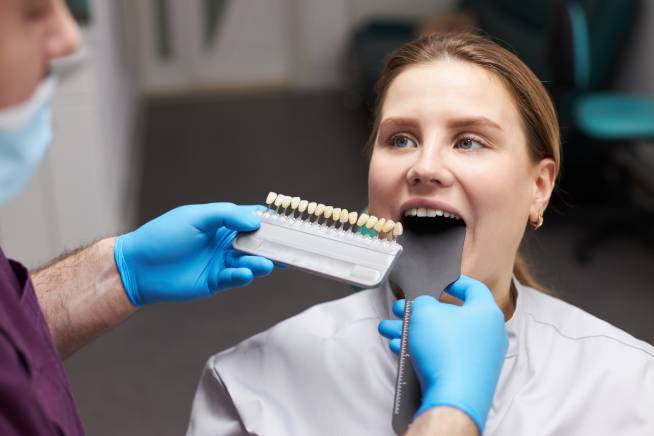How to Prevent Staining After Teeth Whitening?

Teeth whitening is a popular cosmetic treatment that brightens your smile by removing stains and discoloration. A dazzling, white smile can significantly boost confidence, but maintaining that brightness can be tricky.
If proper care is not taken after a whitening treatment, your teeth may be more prone to staining. The process opens up tiny pores in the enamel, making your teeth more susceptible to absorbing pigments from foods and drinks.
This blog will provide simple yet effective tips for preventing staining after teeth whitening, ensuring your smile stays radiant for as long as possible.
Why Can Teeth Stain After Whitening?
After whitening, your teeth are temporarily more porous and sensitive, which makes them vulnerable to staining. The whitening agents used during the procedure break down the discoloration, exposing the inner layers of your teeth.
During this time, the enamel is thinner and weaker, which can make your teeth more prone to absorbing pigments from certain foods and beverages. In addition, the whitening process can leave micro-cracks in the enamel, providing an easy route for stains to settle in.
Some common staining agents to watch out for include coffee, tea, red wine, berries, and sauces. These foods and drinks contain pigments that can latch onto your teeth’s surface, causing discoloration. Even acidic foods, like citrus fruits, can weaken the enamel and increase the likelihood of stains.
It’s essential to be extra cautious for the first 48 hours following a whitening procedure when your teeth are most vulnerable to staining.
Best Practices to Prevent Staining
Avoid Staining Foods and Drinks
To maintain a bright smile after teeth whitening, it’s crucial to avoid dark-colored foods and drinks for at least 48 hours. Items like coffee, tea, red wine, and dark sauces can quickly stain your freshly whitened teeth. Berries, soy sauce, and curry are other culprits to avoid during this period.
By temporarily eliminating these items from your diet, you can help prevent the absorption of stain-causing pigments.
Use a Straw for Drinks
Using a straw when consuming drinks like coffee, tea, or sodas can significantly minimize their contact with your teeth. This simple trick helps reduce the risk of staining by allowing the liquid to bypass your enamel. It’s beneficial for darker beverages that have a higher chance of causing discoloration.
Maintain Proper Oral Hygiene
Brushing your teeth at least twice a day and flossing regularly is essential for removing any food particles or bacteria that could lead to staining. Use a soft-bristle toothbrush to avoid irritating your teeth, especially right after whitening.
Make sure to brush gently, as your teeth may be more sensitive. Consider using a toothpaste that contains fluoride to protect your enamel and help keep your teeth strong. Regular flossing also helps prevent plaque buildup, which can harbor staining agents.
Rinse with Water After Eating or Drinking
One of the easiest ways to protect your teeth from stains is to rinse your mouth with water after consuming food or drink. Rinsing immediately helps wash away any pigments and prevents them from settling into your enamel.
Carrying a bottle of water with you throughout the day is a simple habit that can go a long way in maintaining your whitening results.
Use Whitening Toothpaste or a Whitening Mouthwash
Incorporating whitening toothpaste or mouthwash into your daily routine can help maintain your newly whitened teeth. These products are designed to remove surface stains and keep your smile looking fresh.
Choose a toothpaste with a gentle abrasive formula to avoid damaging your enamel while keeping your teeth bright.
Consider Eating Teeth-Friendly Foods
Some foods can naturally help maintain your teeth’s whiteness. Crunchy fruits and vegetables, such as apples, carrots, and celery, act as natural abrasives. These foods help scrub away plaque and food particles, preventing stains from settling on your teeth.
Dairy products, like cheese and yogurt, are also great options as they contain calcium, which strengthens enamel.
Additional Tips for Long-Term Care
Regular Touch-Ups and Professional Cleanings
To maintain a bright smile long-term, regular professional cleanings are essential. Your dentist can remove stubborn stains that are difficult to get rid of at home.
Additionally, regular touch-ups with whitening treatments can keep your teeth looking their best and help preserve the effects of your initial whitening procedure.
Stay Hydrated
Drinking plenty of water throughout the day helps wash away any food or drink particles that could lead to staining. Water also helps keep your mouth hydrated, which is essential for saliva production.
Saliva is crucial in neutralizing acids and preventing plaque buildup, making it easier to maintain a healthy, bright smile.
Use a Nightguard (if necessary)
If you grind your teeth at night, consider using a nightguard. Teeth grinding can wear down enamel, making teeth more susceptible to stains.
A nightguard can protect your teeth from this damage and help preserve the effects of whitening treatments. If you’re unsure whether you grind your teeth, consult your dentist for advice.
What to Do If Stains Appear?
Don’t Panic!
If you notice minor stains appearing on your teeth after whitening, don’t panic. The first step is to gently brush your teeth with a whitening toothpaste. This can often help remove surface stains. Over-the-counter whitening products can also assist in removing light discoloration.
When to See a Dentist?
If stains persist or become more noticeable, it may be time to visit your dentist. A professional whitening touch-up or cleaning can help restore your smile’s brightness. Your dentist can also provide you with personalized advice on how to prevent future staining.
Preventing staining after a teeth whitening procedure is all about being mindful of your habits and taking the right precautions. Avoiding dark-colored foods, maintaining proper oral hygiene, and using whitening products are all effective ways to keep your smile bright.
Regular touch-ups and professional cleanings can help maintain the results for longer. If stains appear, don’t worry—gentle brushing and professional care can restore your whiteness. To keep your smile shining, follow these tips and consult with our dentists for personalized advice.




